Your Shoes Are Bringing “Cancer-Causing Toxins” Into Your House, Doctor Says
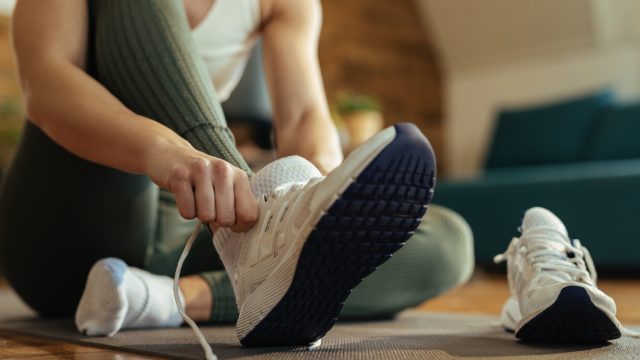
Anyone who’s owned a good pair of shoes knows that they can be much more than just a part of our outfits. In the best-case scenarios, they can help avoid injuries, aid in overcoming foot-related ailments, and make it easier to go about your day. But despite how much they can do for you, there are still some places where experts say you should take them off—including your home. That’s because, according to one doctor, your shoes are bringing “cancer-causing toxins” into your house. Read on to see the potential health risks that come with this habit.
RELATED: What Happens When You Don’t Wash Your Sheets Every Week, Doctors Say.
A doctor warns that wearing your shoes inside can be dangerous for your health.
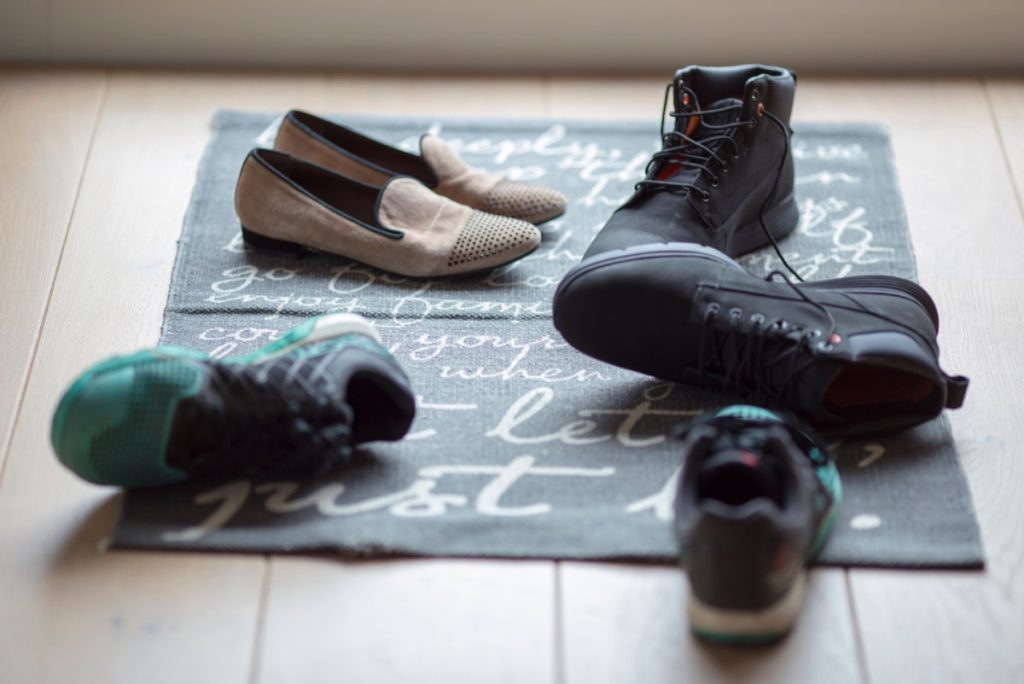
In the U.S., taking your shoes off after walking through the front door isn’t exactly a cultural norm. Even though some may have a steadfast habit of being barefoot indoors, others may only think to kick them off when they’re wet from the rain, while a few of us may never give it a second thought.
But even if you’re not tracking visible mud and dirt into your home, wearing your shoes inside could still create a health hazard. In an Instagram reel posted on Sept. 7, Robert Singleton II, MD, warns that a study found that street shoes transferred up to 99 percent of the germs picked up outside onto floor tiles in homes.
And it’s not just run-of-the-mill viruses and bacteria that are cause for concern. “Your shoes may also carry cancer-causing toxins from asphalt road reside and endocrine-disrupting lawn chemicals,” he warns. “So tell everybody in your household: ‘Absolutely no shoes inside.'”
RELATED: 5 Ways Your Home’s Carpeting Can Make You Sick.
Experts agree these dangerous contaminants create specific risks.
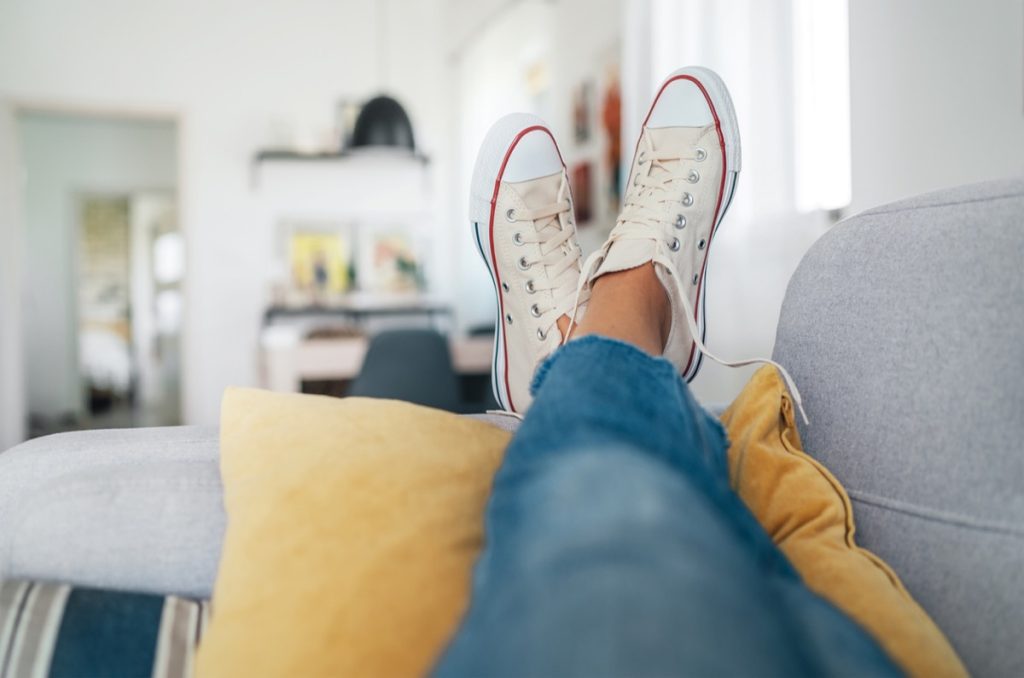
Unfortunately, other experts agree that the video raises a good point about the dangers of not going barefoot in your home.
“Shoes, like other clothes, can retain harmful substances from the environment,” Sean Marchese, RN, a registered nurse at The Mesothelioma Center, tells Best Life. “For most healthy adults, the risk of infection or illness from toxic materials on clothing is low. However, even a tiny exposure could be hazardous depending on the chemical or material.”
Marchese says that you’re likely to track in specific contaminants due to contact with the ground, including the concerning ones mentioned in the Instagram post. “Asphalt roads can contain polycyclic aromatic hydrocarbons, a cancer-causing compound, and lawn chemicals may have glyphosate, which can be dangerous if improperly handled,” he explains. “And after a fire or natural disaster, asbestos-containing materials pose a significant hazard, and residue from construction materials can create exposure that could lead to life-long health issues.”
RELATED: 5 Essential Reasons You Should Start Wearing “House Sneakers,” Podiatrists Say.
This can be particularly dangerous for households with toddlers or young children.
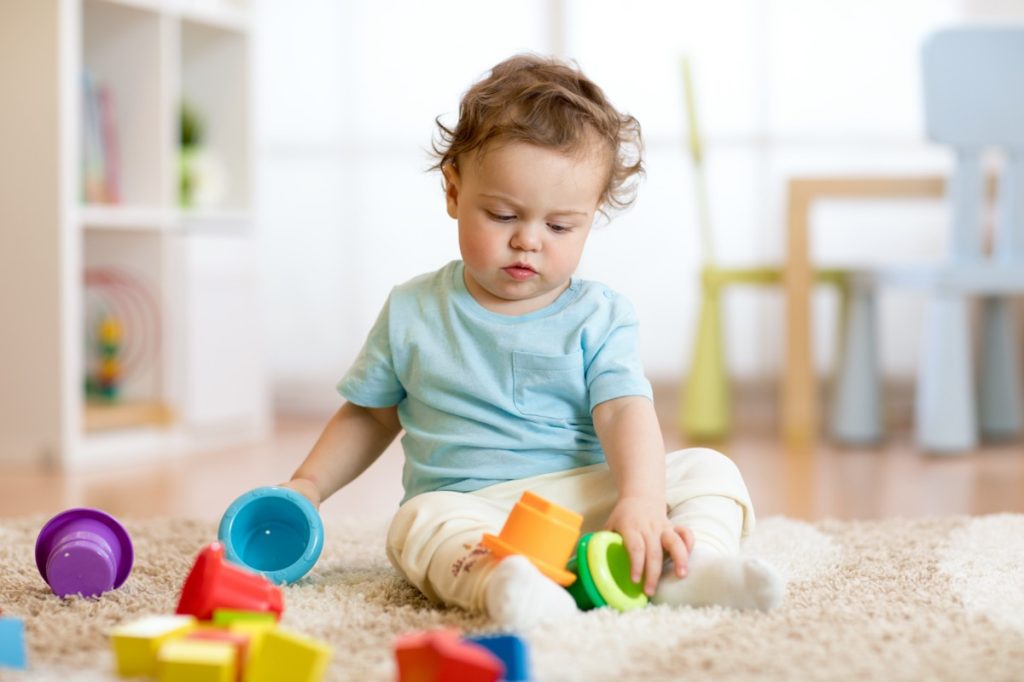
As Singleton mentions, many of the harmful pathogens and chemicals that make their way indoors on our shoes can make floors a veritable petri dish of problems. And while that could mean problems for adults who drop items, it can be even worse for those who spend all their time at ground level.
“This is especially problematic for those with small children who crawl on the floor as they may touch debris with their hands and transfer it to the mouth, which may cause illness or disease,” says Bruce Pinker, PDM, founder and owner of Progressive Foot Care.
RELATED: The Gross Reason You Should Never Make Your Bed Right After Waking.
Most experts agree that having a “shoes off” rule can be beneficial.
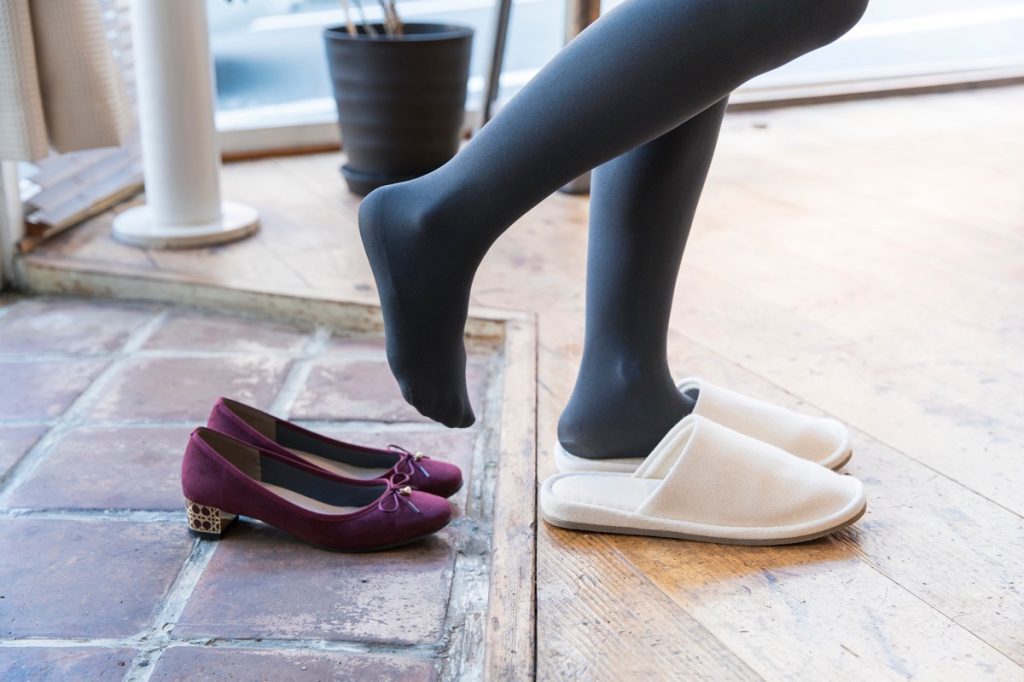
Despite the microbial risks, some experts point out that other issues could come with going completely barefoot indoors. In some cases, walking around all day without support can create more immediate injuries or health issues—especially if you work from home, Priya Parthasarathy, a board-certified podiatrist, told The Washington Post.
Others point out the risk of becoming sick or getting an infection from outside microbes is also relatively low. And while young children may be exposed to germs more frequently, that exposure can help to develop their budding immune systems, Philip Tierno, Jr., a professor of microbiology and pathology at New York University School of Medicine, told The Post.
But still, many agree that there are decided benefits to keeping your shoes out of your inside living space. Instead, consider a pair of supportive indoor footwear that can provide the support you need without the risk of bringing in harmful chemicals.
“Although the general risk of exposure to toxic materials from your shoes is low, some simple precautions can protect you and more vulnerable family members, such as children, from unnecessary harm,” says Marchese. “Remove your shoes before entering your living space, wash your footwear occasionally, and regularly mop and vacuum your floors to eliminate outdoor residues.”
For more wellness advice delivered straight to your inbox, sign up for our daily newsletter.